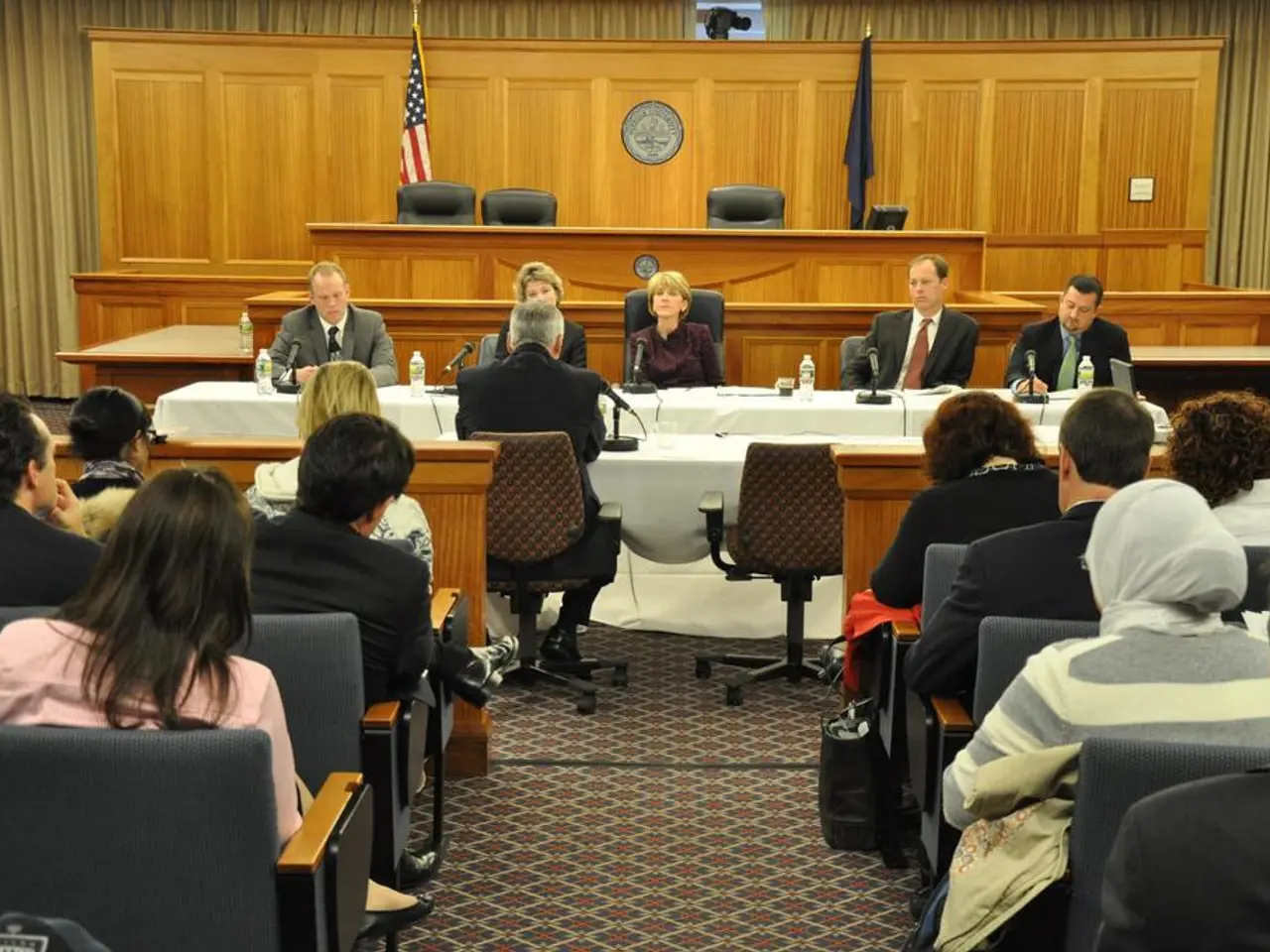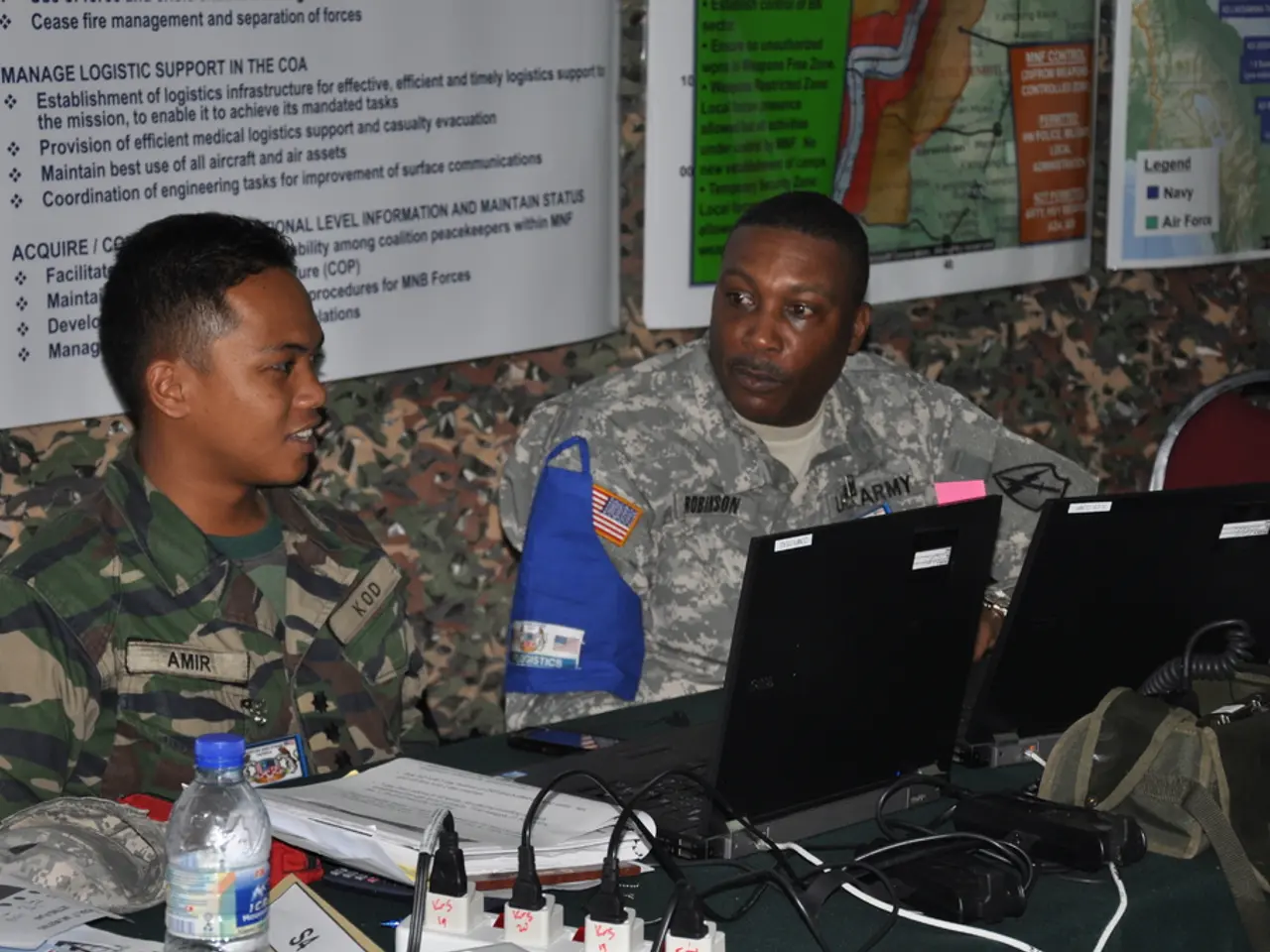Diplomatic Dilemmas: A Clash of Media Boundaries
Diplomatic Tension Escalates: Journalists Under Controversial Disputes Between Berlin and Moscow
In the heart of Europe, the diplomatic landscape is shaking as Germany and Russia find themselves at loggerheads over media matters. The tempestuous relationship between the two governments is casting a long shadow on press freedoms and international co-operation.
Diplomatic Cross-Ups
The German ambassador, Alexander Graf Lambsdorff, was called to the Russian Foreign Ministry in June of 2025, creating ripples in the diplomatic community. The summons, Moscow asserted, was due to what it termed as Germany's disregard for Russian journalists, a point that Berlin firmly denied. The root of the issue? A lapsed residence permit for an employee of a Russian state media outlet and his family, ordered to depart Germany by August 19. This move, according to the Kremlin, mirrors a pattern of Germany disregarding press freedoms and diversity of opinion[2][3].
Germany's Political Battlefield
Germany's Chancellor, Friedrich Merz, has steadfastly refused to enter discussions with Russian President Putin, citing previous diplomatic failures. Merz's administration's hardline stance, however, is challenged by some coalition factions advocating rapprochement with Moscow. This internal political divisiveness could potentially undermine Germany's foreign policy credibility[1][4].
Communication Breakdown
There were reports of communication mishaps within the German Foreign Ministry, with the ambassador initially not understanding the rationale behind the summons, hinting at gaps in diplomatic communications[2].
Escalating Reprisals
Russia's threat of retaliatory measures against German journalists in Russia could further tighten media reins and deepen international mistrust, complicating bilateral relations[2].
A Chilling Climate for Journalism
This media-centric confrontation points to a broader climate of repression and reciprocal restrictions affecting journalistic activities, potentially suppressing free press activities in both nations[5].
Geopolitical Risks
Entwined with these media-related frictions, heightened tensions are brewing around the 2025 NATO Summit. As Russia prepares to escalate 'hybrid threats' such as cyber and infrastructure attacks on European countries like Germany, the stakes for diplomatic ties and security cooperation are substantially elevated[5].
In essence, the diplomatic issues between Germany and Russia revolve around visa and residence permit denials for Russian media personnel in Germany, Russia's retaliatory threats against German journalists, and communication difficulties at high diplomatic echelons. Chancellor Merz's firm, non-engagement approach towards Putin, along with internal political pressures in Germany, highlight the complexity of the situation. The consequences may include increased restrictions on media, further diplomatic retaliation, and intensified geopolitical tensions tied to broader security concerns in Europe[1][2][3][4][5].
- The ongoing diplomatic issues between Germany and Russia involve not only visa and residence permit denials for Russian media personnel in Germany, but also Russia's retaliatory threats against German journalists and communication difficulties at high diplomatic echelons.
- In the realm of policy-and-legislation, the diplomatic standoff between Germany and Russia is escalating due to Russia's threats of retaliatory measures, potential increases in restrictions on media, and the complexities of Germany's internal politics, all of which are affecting general-news, crime-and-justice, and politics, creating a dangerous climate of international mistrust and geopolitical risks.




